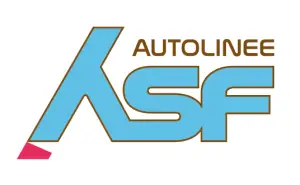Norme di viaggio
E’ fatto obbligo ai viaggiatori di attenersi scrupolosamente al seguente regolamento, emanato per la sicurezza e la regolarità del servizio.
Salita e discesa dagli autobus
- La salita e la discesa dagli autobus sono consentite esclusivamente in corrispondenza delle fermate autorizzate poste lungo i percorsi delle linee.
- Se la fermata è a richiesta, per salire a bordo, segnala chiaramente l’intenzione al conducente con un chiaro gesto del braccio. Per scendere, ricordati di prenotare la fermata premendo l’apposito pulsante per tempo.
- La salita è consentita, se non diversamente indicato, solo dalla porta anteriore.
- Non è ammessa la salita sull’autobus se è già stato raggiunto il numero complessivo massimo di viaggiatori previsto dalla carta di circolazione del veicolo.
Documenti di viaggio
- I viaggiatori devono essere in possesso di un titolo di viaggio valido o di un documento attestante l’ammissione alla libera circolazione a bordo degli autobus, in conformità alla normativa vigente.
- Il documento di viaggio deve essere convalidato appena saliti a bordo secondo le modalità previste per ogni documento. In caso di cattivo o mancato funzionamento dell’obliteratrice, il viaggiatore è tenuto a darne immediato avviso al conducente presentando contemporaneamente il documento di viaggio.
- I viaggiatori in possesso di abbonamento o di tessera di libera circolazione, al momento della salita sull’autobus devono esibire al conducente il documento di viaggio.
- Gli abbonamenti hanno validità solo se abbinati alla tessera di riconoscimento, il cui numero deve essere riportato sull’abbonamento a cura del viaggiatore. Inoltre la tariffa riportata sul tesserino deve corrispondere a quella riportata sull’abbonamento. Chi viaggia senza la tessera di riconoscimento fisica, o con una tessera di riconoscimento scaduta o non conforme all’abbonamento incorre in una sanzione.
- Gli abbonamenti annuali scolastici di rete urbana o extraurbana, emessi online o c/o le biglietterie aziendali, valgono sulle linee ASF per raggiungere Istituti Scolastici nella provincia di Como.
- Il documento di viaggio, avendo valore di scontrino fiscale, deve essere conservato integro e riconoscibile per tutto il tempo della sua validità.
- Il viaggiatore è tenuto ad esibire il titolo di viaggio (nel caso di pagamento con carta vedi al seguente link) ad ogni controllo eseguito dal personale del Vettore, in divisa o in borghese, munito di regolare documento di identificazione.
- Il rimborso dei titoli di viaggio non utilizzati è ammesso con le modalità definite dalla Regione e dagli Enti Pubblici affidanti.
- E’ vietata la cessione dei titoli di viaggio nominativi e, dopo l’inizio del viaggio, la cessione dei titoli di viaggio non nominativi.
Trasporto di bambini
- I bambini di altezza fino a cm.110 possono viaggiare gratuitamente se accompagnati da un adulto munito di documento di viaggio.
- I bambini non paganti non hanno diritto ad occupare posti a sedere e devono essere tenuti in grembo.
- E’ consentito trasportare gratuitamente passeggini e carrozzine per bambini purché ripiegati, in modo da non recare danno agli altri viaggiatori e ingombro per il passaggio.
- E’ consentito trasportare passeggini o carrozzine per bambini anche non ripiegati solo sugli autobus forniti di postazione per disabili in carrozzella, entro la zona ad essi riservata. Il passeggino deve essere ripiegato in caso di affollamento o di salita a bordo di un disabile in sedia a rotelle.
- Durante il viaggio, il passeggino deve essere frenato e costantemente tenuto dall’accompagnatore per evitare spostamenti o cadute in caso di brusche frenate.
Trasporto di animali domestici
- Ogni viaggiatore munito di documento di viaggio può portare con sè un cane di piccola taglia dotato di guinzaglio e museruola oppure un altro animale domestico, purchè trasportato all’interno di un’apposita gabbietta, sempre e comunque dietro acquisto di un titolo di viaggio alla tariffa in vigore.
- Durante il trasporto, l’animale deve essere tenuto al guinzaglio, in braccio vicino alla persona che l’accompagna (mai sui sedili), in modo da non ingombrare la piattaforma, corsia o le porte, e non deve arrecare disturbo ai viaggiatori: qualora ciò avvenisse, l’animale sarà allontanato dall’autobus senza che per questo il viaggiatore abbia diritto al rimborso dei biglietti.
- E’ cura dell’accompagnatore evitare che l’animale salga sui sedili, insudici o deteriori la vettura o rechi danni ai viaggiatori. Ove ciò succeda, l’accompagnatore è tenuto al risarcimento degli eventuali danni. Il trasporto di animali, esclusi i cani guida, può essere rifiutato in caso di affollamento dell’autobus.
- I cani guida per non vedenti sono ammessi a viaggiare gratuitamente a meno che il non vedente sia assistito da accompagnatore con viaggio gratuito.
Trasporto di cose
- Ogni viaggiatore può trasportare gratuitamente un solo bagaglio purché le dimensioni non siano superiori a cm. 50x30x25. Per ogni ulteriore bagaglio, e per quelli che eccedono le dimensioni suddette, dovrà essere acquistato il relativo biglietto alla tariffa in vigore.
- È consentito il trasporto di biciclette e monopattini pieghevoli, alle seguenti condizioni:
• Il mezzo deve essere ripiegato
• Sono ammessi massimo 1 mezzo per passeggero e 2 mezzi per vettura
• Il mezzo deve essere collocato nello spazio riservato ai disabili
• Il mezzo non può essere ammesso a bordo in caso di affollamento della vettura o di presenza di un disabile o di passeggini a bordo
• Il passeggero assume su di sé ogni responsabilità per danni a persone o cose derivanti dal trasporto del mezzo - La perdita e l’avaria al bagaglio dei viaggiatori sono soggette a responsabilità aziendale se determinate da causa imputabile al vettore; in ogni caso il risarcimento del danno non può eccedere i limiti previsti dall’articolo 2 della legge 22 agosto 1985, n. 450.
- Il viaggiatore che trasporta bagagli, colli o pacchi non riposti nell’apposito bagagliaio è responsabile della loro custodia e dei danni che i medesimi dovessero eventualmente arrecare a cose e/o persone. I bagagli devono essere tenuti in posizione tale da non ostacolare il passaggio dei viaggiatori, oltre a salvaguardare la loro incolumità.
- Sono esclusi dal trasporto i bagagli contenenti merci pericolose e nocive, nonché materiale infiammabile.
Doveri del viaggiatore
Ai sensi del citato Decreto 30 dicembre 1998, il cittadino che viaggia ha i seguenti doveri da rispettare:
- non salire sui mezzi di trasporto senza un valido titolo di viaggio;
- non occupare più di un posto a sedere e, senza averne diritto, i posti prenotati e quelli riservati a mutilati ed invalidi;
- non danneggiare e non sporcare i mezzi e le infrastrutture;
- rispettare il divieto di fumare;
- non salire a bordo in stato di ebbrezza o dopo aver fatto uso di droghe o altre sostanze ad esse assimilate;
- non tenere comportamenti tali da recare disturbo ad altre persone;
- non trasportare cose e/o animali senza rispettare le limitazioni/indicazioni stabilite dalla Società;
- non gettare oggetti dal finestrino;
- non usare i segnali di allarme o qualsiasi altro dispositivo di emergenza se non in caso di grave ed incombente pericolo;
- non esercitare attività di commercio o attività pubblicitaria senza il preventivo consenso del vettore;
- attenersi diligentemente a tutte le prescrizioni ed alle formalità relative ai controlli di sicurezza;
- rispettare scrupolosamente le istruzioni e le disposizioni impartite dal vettore e le indicazioni ricevute dagli operatori (personale di guida e/o di controllo);
- utilizzare i mezzi di trasporto e le infrastrutture seguendo puntualmente le regole prefissate – assieme a quelle del vivere civile – non compromettendo in alcun modo la sicurezza del viaggio ed i livelli di servizio per se stesso e per tutti quelli che viaggiano.
Prescrizioni per la sicurezza dei viaggiatori
Gli autobus sono omologati per il trasporto di un determinato numero di persone, di cui una parte con posti a sedere ed una parte con posti in piedi.
I viaggiatori sono tenuti ad osservare le seguenti norme, poste a tutela della loro incolumità e sicurezza:
- occupare tutti i posti a sedere fino a che ve ne sia disponibilità e rimanere seduti per tutta la durata del viaggio, fino a che il mezzo non si sia fermato. Nel caso in cui siano presenti le cinture di sicurezza nel posto occupato, il passeggero è tenuto ad allacciarle.
- Viaggiare in piedi solo lungo i tratti per i quali non vi sia disponibilità di posti a sedere, sorreggendosi alle maniglie, ai sostegni ed ai mancorrenti.
- Vigilare sulla sicurezza ed incolumità delle persone, degli animali e delle cose che restano sotto la loro custodia.
- Il vettore declina ogni responsabilità in caso di incidenti subiti dai viaggiatori che non si siano attenuti alle prescrizioni sopra indicate.
- Il viaggiatore deve attenersi a tutte le altre avvertenze e disposizioni emanate dal personale aziendale per la sicurezza e la regolarità del servizio.
- Obbligo di declinare le proprie generalità
- Il viaggiatore è tenuto a declinare e documentare le proprie generalità al personale aziendale addetto alla vigilanza, in borghese o in divisa, munito di regolare documento di riconoscimento.
- Nell’esercizio delle loro funzioni, gli operatori addetti alla vigilanza sono tutelati dalle norme, anche di diritto penale, previste per i pubblici ufficiali e gli incaricati di pubblico servizio.
Orari e coincidenze
Gli orari esposti al pubblico possono subire variazioni per esigenze di servizio, caso fortuito o cause di forza maggiore.
Il vettore declina ogni responsabilità per le conseguenze derivanti da ritardi, perdute coincidenze e qualsiasi altro evento indipendente dalla propria volontà.

